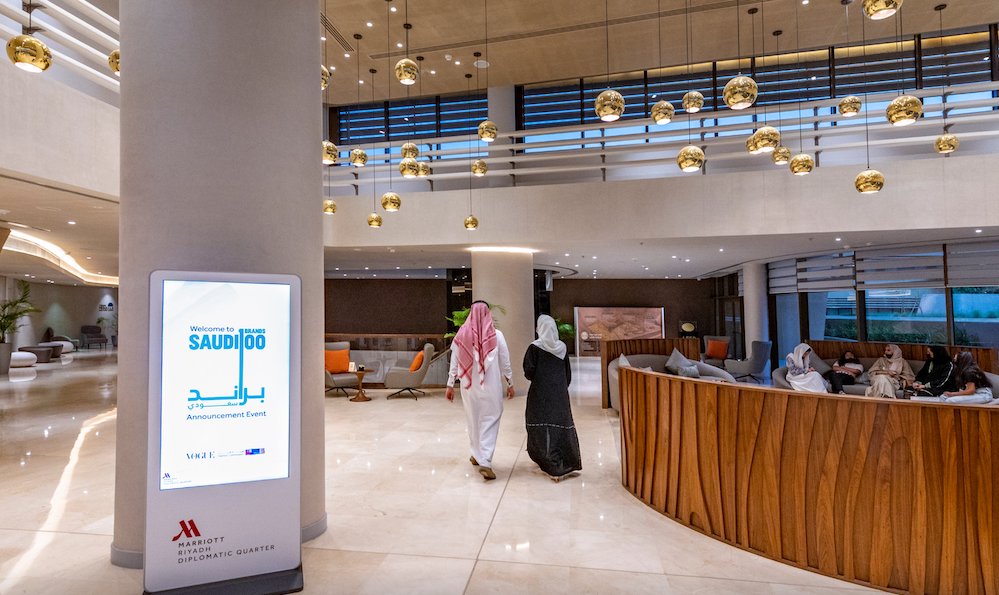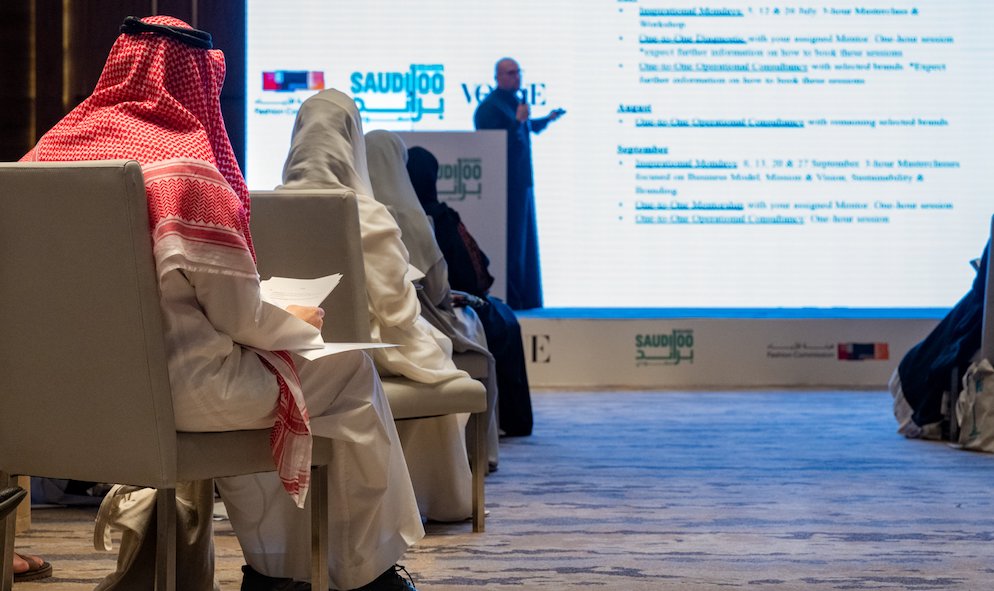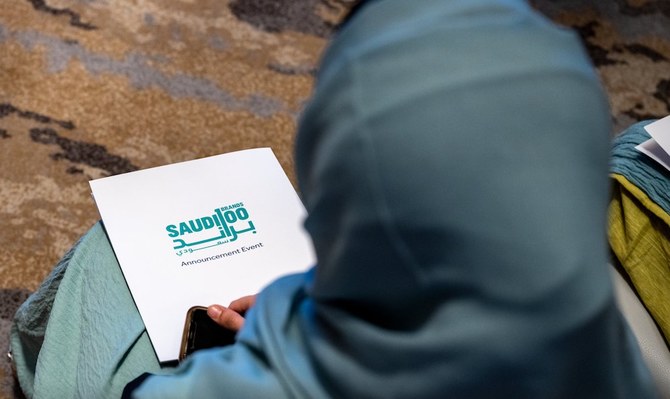RIYADH: The Kingdom’s Fashion Commission on Wednesday announced the finalists chosen to participate in its year-long Saudi 100 Brands program. The initiative will include training, advice and mentorship from experts in the fashion sector.
The successful applicants were revealed during a ceremony at the Marriott Hotel in Riyadh’s Diplomatic Quarter. They were chosen after two weeks of interviews carried out by experts in the capital and Jeddah, and online. Based on these, the initial list of 1,348 candidates was whittled down to a shortlist of 400.

The program offers a one-year brand development initiative with training and mentoring, individual and group consultancy and advisory sessions, and virtual and in-person training workshops. (Twitter/@FashionMOC)
The first consulting and training initiative of its kind, the program has highlighted the diversity of talent among fashion designers in the Kingdom. The chosen participants range from Saudi designers who have already launched successful brands inside and outside the Kingdom, to young designers and start-ups.
Among them is a Saudi woman from the city of Khobar who has more than three decades of experience in designing and sewing bridal gowns. Another is a woman from the third generation of a family-owned jewelry company in Riyadh. A Saudi brand with a presence in London and Dubai was also chosen.

The program covers a wide range of topics including branding, conceptualization, sales performance strategy, public relations and marketing, client identification, innovation and technology, and key leadership skills. (Twitter/@FashionMOC)
The program will begin next week with a consultative program presented by specialists in the fashion sector who have practical experience of prestigious international brands such as Chanel, Valentino, Bvlgari, Kering and LVMH. They will provide group and individual training courses and advisory sessions covering topics such as business development and design. The program also includes international partnerships with Vogue Arabia and regional retailers.
Princess Noura bint Faisal, the Fashion Commission’s sector development director, said that the enthusiasm of the candidates was evident during the interviews, as was their eagerness to share the stories of their careers, including successes and frustrations.
HH Princess Noura bint Faisal Al Saud, describing the enthusiasm and passion of #Saudi100Brands candidates. pic.twitter.com/vGFV1rh84Y
— هيئة الأزياء (@FashionMOC) July 7, 2021
“In general, we sensed the passion of Saudi designers as they spoke of their experience while working to establish their own brands,” she said. They also spoke the challenges they faced, she added, especially the fear of failing to achieve their dreams.
“The Fashion Commission understands all these challenges and concerns,” said Princess Noura. “Speaking directly with the creative community helps us understand their concerns, and leads us to plan more initiatives that help them overcome their fears.”
Burak Cakmak, the Fashion Commission’s CEO, said the program recognizes that the finalists are at differing stages of their careers, and so the individual programs developed for each of them will vary depending on specific needs.

The Saudi 100 Brands program aims to boost competitive business advantage for Saudi brands in the global fashion industry. (Fashion Commission)
The first step will therefore be to gather as much information from them as possible, he explained. Then control of the program will be placed in their own hands by having them set objectives for themselves in the areas they feel will benefit them the most, given that a key aim is to help them develop their businesses and build their brands by improving their technical skills, and create international opportunities.
The 100 Brands program, which was launched by the commission on June 3, also covers concepts such as innovation, the technical aspects of fashion, sales and marketing strategies, and leadership skills. The aim is to nurture and support the development of 100 Saudi brands capable of competing regionally and internationally.
It is part of the commission’s efforts to develop the fashion sector in the Kingdom, within the framework of the national strategy for culture that forms part of Saudi Vision 2030.

















